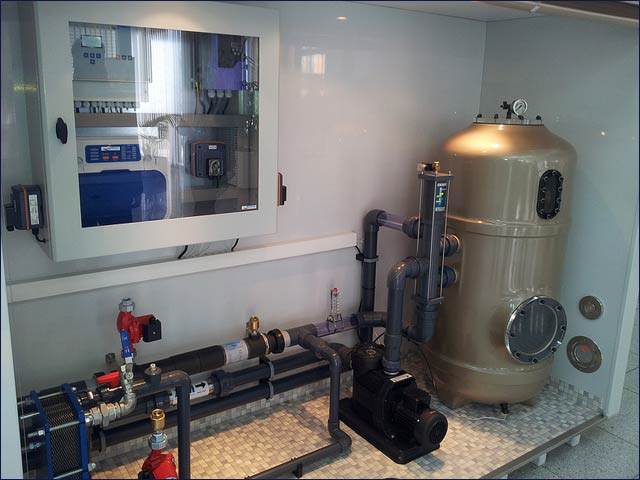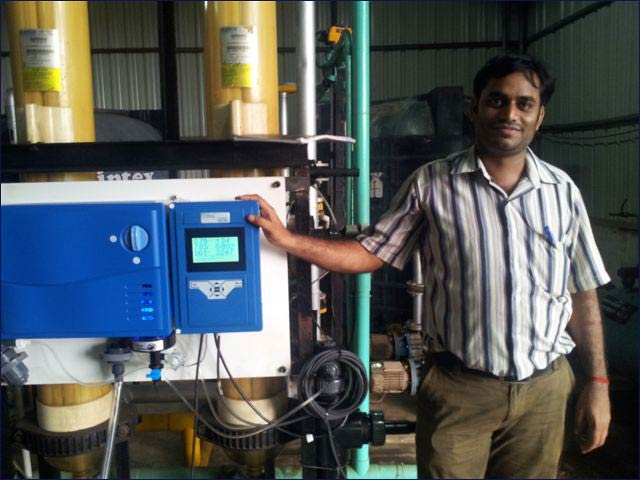By Rivka Borochov
What do international companies like Yoplait, Coca-Cola, General Electric and the chemical giant BASF have in common? Along with Barcelona and several American cities, they are now relying on the Israeli water-monitoring company Blue I (“blue eye”) to keep an eye on their water.
The Israeli company, with millions of dollars in turnover, provides a real-time monitor that can test for chlorine and clarity in factory or municipal water.
Coca-Cola can’t have impurities or any added taste in its secret recipe. And Yoplait’s world-famous yogurt production must abide by strict taste and security standards that customers expect.
Stela Diamant, the CTO of Blue I, says her company is the “gatekeeper for the food industry.”
Security is a growing concern for city officials. While there is currently no test on the market that can sniff out anthrax poisoning in municipal water, if something looks suspicious in the water supply, Blue I’s spot boxes can send out alerts to suspend operations until the problem is solved.
The extreme sensitivity of its turbidity and chlorine monitors, run by electro-optics, can detect the faintest of changes that can affect test parameters, says Diamant.
Putting pool boys out of business
The company recently secured a $3 million investment, led by Israel’s Effi Capital, to expand its latest electro-optic technology: Plazma, an automated “pool boy” for ongoing maintenance of swimming pools in condominiums or other private settings. It assures the correct pH and chlorine balance.
“Plazma reports and controls,” says Diamant. “We came up with an analyzer that doesn’t need any technical person to operate it, and still maintains the pool in the condo building.”
The investment, announced in June, will be used in part to enter the Latin American market. Blue I is already testing 20 of its units at condo pools in Brazil. Previously, the company helped make sure that pools were safe and clean during the Beijing 2008 Olympics.

This Prizma pool purification is working in Germany Blue I was founded in 2003 and is now controlled by the Shaked Global Group, Docor International Management and Tene Investment Funds. This investment group is also helping the Israeli company enter Asia. One of the latest deals is for the Guangdong region of China.
“We are on the verge of being huge,” Diamant promises.
The case of Coca-Cola
While new water monitoring companies are connecting to smart water networks, the Internet cloud and smartphones, Blue I was one of the first to define this space.
“We are really pioneers in this very traditional world,” Diamant says.
There are already tens of thousands of Blue I systems operating around the world. Typically they are sold through distributors, including one that provides products for bottling plants.
Blue I currently has its technology installed in 25 Coca-Cola plants, from Israel to India. The giant soft-drink maker likes the system’s ability to detect even trace levels of chlorine. Diamant says this is critical because chlorine is added to the plant’s water to sterilize it, and then must be entirely removed before being made into soda-pop.

The Coca-Cola bottling plant in India uses Blue IThe company’s independent bottling sites need to be 100 percent sure that no chlorine gets into the world’s favorite drink, and Blue I can give them that guarantee, she says.
Blue I employs 25 people in Israel, based in Rosh Ha’Ayin’s Afek Industrial Park. The company was located in Kibbutz Ramat Rachel on the southern border of Jerusalem until it split from its sister company, Mapal Pools, to form its own entity. It offers about a dozen products.
Within Israel, Blue I clients include Israel’s national water carrier, Mekorot, as well as Israel’s Oil Refineries.